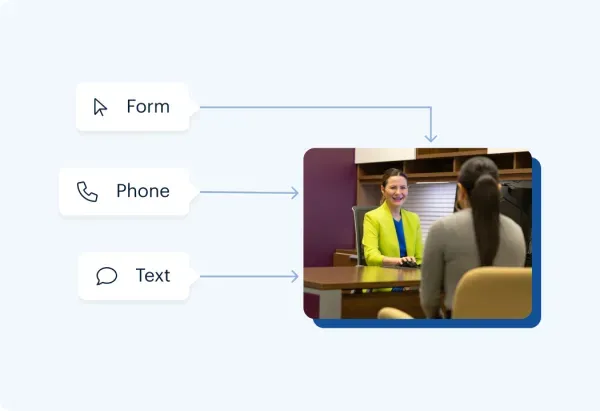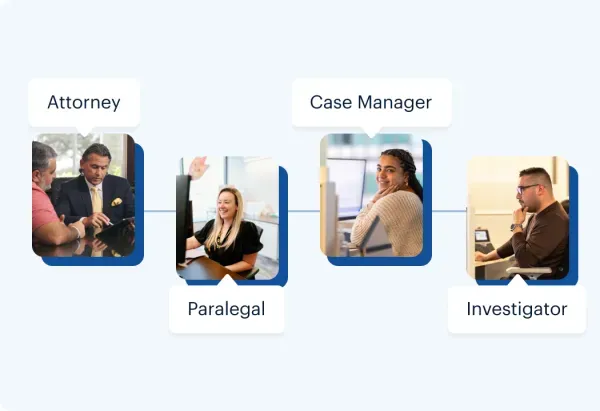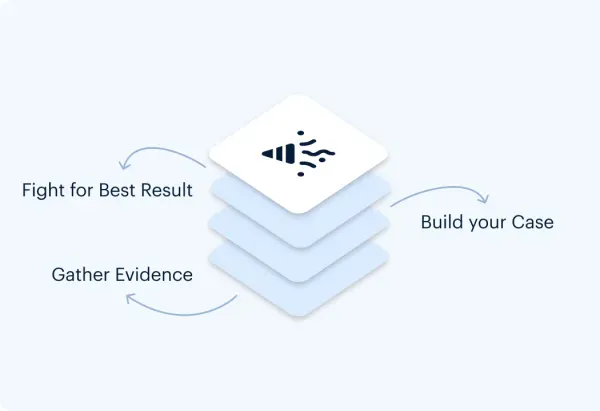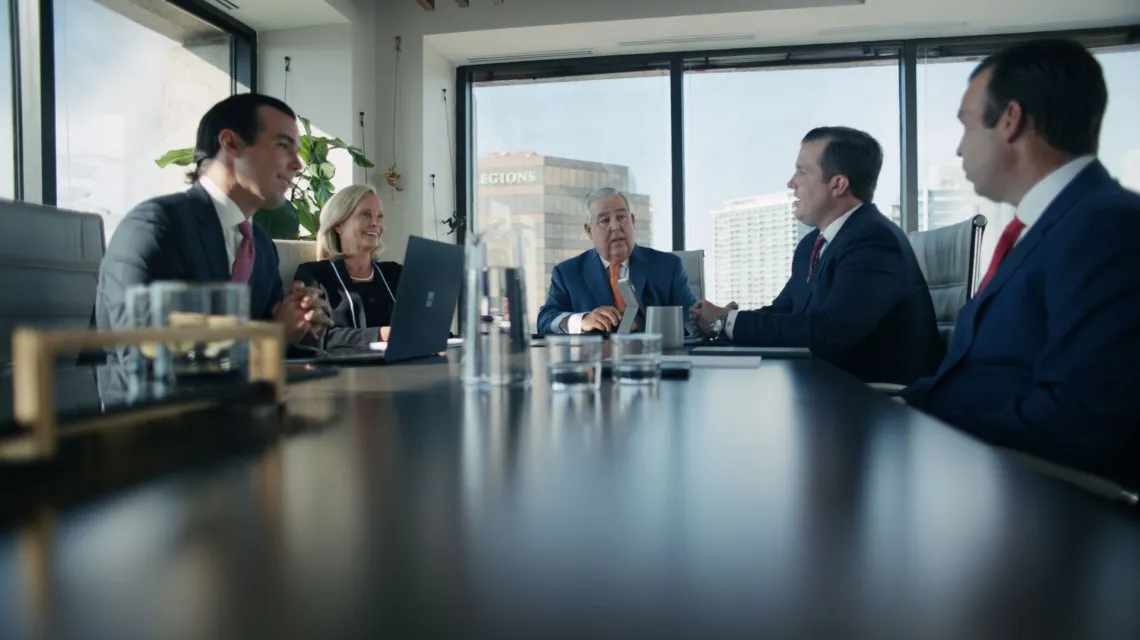Results may vary depending on your particular facts and legal circumstances. The attorney featured above is licensed in Florida. For a full list of attorneys in your state please visit our attorney page.
MISSISSIPPI CHILD LABOR LAWYERS
If you've been underpaid, misclassified, or denied overtime, we fight wage & hour theft to recover the compensation you’ve earned and hold employers accountable.
Results may vary depending on your particular facts and legal circumstances. The attorney featured above is licensed in Florida. For a full list of attorneys in your state please visit our attorney page.
Child Labor Laws in Mississippi
Child labor laws are one of the most important types of worker protections. These laws are in place at the federal and state level.
In most cases, these regulations are intended to protect children from unsafe or overly-strenuous working conditions. When a company violates federal or state child labor laws, it may face legal consequences.
That is why it is critical to understand Mississippi child labor laws if you own or operate a business. It is also important for the parents of children to understand the protections that these regulations guarantee.
If you believe that you have been the victim of violations of Mississippi child labor laws, do not wait. Reach out to a skilled legal professional to pursue financial compensation for the harm that you suffered.
The accomplished child labor attorneys at Morgan & Morgan have plenty of experience representing workers. Our team has the skills and knowledge to represent those affected by child labor law violations.
Companies have the responsibility to comply with all federal and state labor regulations. When a negligent company fails in its responsibility, victims have the legal right to pursue financial recovery.
To schedule a free consultation to discuss the details of your case, fill out the contact form on the Morgan & Morgan website.
150,000+ Five Star Reviews
The reasons why clients trust Morgan & Morgan.
Results may vary depending on your particular facts and legal circumstances. Based on select nationwide reviews.
Do I Need a Lawyer to Pursue an Employment Law Case?
If you are hoping to recover financial compensation for an employment law violation, it is critical to secure the services of a legal professional. An experienced labor lawyer can help you to identify any FLSA violations in your situation.
While the Fair Labor Standards Act offers legal recourse to workers who have been wronged, filing a legal claim is very complex. A knowledgeable legal expert will review your case and walk you through every step of the legal process.
When you hire one of the attorneys at Morgan & Morgan, we will fight tirelessly on your behalf. If necessary, we will file a lawsuit on your behalf to recover compensation.How Are Employment Law Attorneys Paid?
Most reputable tort lawyers are paid through a method called “contingency fees.” With this payment approach, claimants are not responsible for providing any upfront attorneys’ fees.
Instead, the legal professional and client agree to a certain percentage of the financial recovery from the case. Typically, this amount is around one-third.
After the lawyer secures financial compensation for the client, that portion of the winnings are used to cover legal fees and costs. When you hire the team at Morgan & Morgan, you will pay nothing unless we successfully recover compensation in your case.Morgan & Morgan Will Fight on Your Behalf
When you need representation in an employment law violation claim, look no further than America’s most trusted firm–Morgan & Morgan.
Since the founding of our firm, we have won over a million cases. As a result, our attorneys have secured more than $30 billion in financial recovery for a wide range of clients.
To schedule your no-cost legal evaluation, complete the user-friendly contact form on the Morgan & Morgan website. We are ready to fight on your behalf.The History of Child Labor Laws
In the early years of the 1900s, child labor was common in the United States. Labor reform and union movements began to grow in the following decades.
As a result of these organized labor movements, instances of child labor began to decline, and worker conditions improved. Many of the early workers’ movements that focused on child labor worked to improve conditions in sweatshops.
The political pressure applied by these organized labor movements was intertwined with efforts to provide free public education for American children. These worker protections movements resulted in the passage of the Fair Labor Standards Act (FLSA) in 1938.
As the result of this legislation, federal standards for child labor were put in place. If you have questions regarding how the FLSA or Mississippi child labor laws affect your situation, it is vital to speak with an attorney.Understanding the Fair Labor Standards Act
The Fair Labor Standards Act is a sweeping piece of legislation that provides guidance for treating workers fairly. This law requires all American businesses to comply with certain regulatory requirements.
For instance, U.S. employers must:- Provide workers with at least the federally-mandated minimum wage
- Offer employees overtime pay for weekly work over 40 hours
- Comply with child labor provisions
- Maintain adequate records
Among other things, companies are required to record worker hours, wages, and more. These records help to ensure that employees are treated fairly and adequately compensated.
Under the FLSA, businesses must maintain records of the following:- The time and day that the workweek begins
- Total employee work hours each day and week
- Employees daily and weekly earnings
- Hourly pay rates for workweeks with over 40 hours
- Wage additions and deductions
- Pay dates and pay periods
The FLSA specifies many regulatory requirements for businesses. However, some common business practices are not required by the FLSA. These include:
- Payment for sick days, vacation, or holidays
- Paid mealtimes or break periods
- Increased pay for working on nights, holidays, or weekends
- Pay increases and raises over time
- Fringe benefits
- Providing workers with a reason for discharging them
- Regular work performance reviews
- Health insurance or other related benefits
If you believe that you have an employment law violation case, reach out to the compassionate attorneys at Morgan & Morgan.
We know that workers deserve competent legal representation in the face of negligent corporations. Our team has plenty of experience fighting for justice in labor law violation cases.The Fair Labor Standards Act and Child Labor Laws
There are several elements of the FLSA that regulate child labor. These regulations are meant to protect underage Americans from unsafe or detrimental working conditions.
The FLSA also lays out limits on working hours for those under 16 years of age. Under federal regulations, some occupations are considered too dangerous for minors to perform.
Some of the jobs that minors are legally prohibited from performing include:- Coal mining jobs
- Jobs relating to forest fires
- Excavation jobs
- Jobs involving dangerous machinery–circular saws, metalworking machines, etc.
- And more
While some elements of the Fair Labor Standards Act are only intermittently enforced, this is not the case with child labor laws. Violations of the FLSA related to child labor often result in severe legal consequences for the offending party.
The FLSA provides workers and employees with legal recourse in the instance of a regulatory violation. In some instances, employees can seek compensation for their losses and expenses.Mississippi Child Labor Laws
While federal child labor regulations apply in all fifty states, states often have more specified laws. Mississippi child labor laws set limits on the amount of time that minors of different ages can work.
The minimum legal age to work in Mississippi is 14 years old. Children who are 14 to 15 years old are only permitted to work between the hours of 7:00 am and 7:00 pm.
They can only legally work three hours in a single day. Each week, children of this age range may only work up to 18 hours during the public school year.
Children who are 16 to 17 years old may work longer hours. But under Mississippi child labor laws, they can only engage in non-hazardous positions.
Those who are 18 to 20 years old are permitted to work in establishments that provide customers with alcohol. This includes both restaurants and stores that sell alcoholic beverages.
Those over 21 do not face any child labor restrictions. They are legally able to serve alcohol for the purpose of consumption.Underage Work Permits
Many states require all underage workers to secure work permits before finding employment. In Mississippi, the regulations are much more permissive.
Only minors working in certain types of occupations are required to secure a work permit. For instance, an employment certification is necessary for anyone under 16 years of age hoping to work in the following contexts:- Mills
- Canneries
- Workshops
- Factories
A work permit is necessary for any of these occupational contexts no matter the time of year. During the school year, minors can secure a work permit from their public school.
During the summer months, minors can secure employment certificates from the local Department of Labor office or board of education. When seeking a work permit in the summer, minors should take the following steps:- Secure a job offer from a relevant employer
- Obtain a work permit application
- Fill out the form–including sections for guardians and employers
- Submit the application with a relevant proof-of-age document
These work permit requirements only apply to those hoping to work in one of the contexts mentioned above. Still, hour requirements apply to all workers below 16 years of age.
Work Prohibitions in Mississippi
Some types of jobs are prohibited for those who are not of legal age. Typically, this is because these positions present inherent risks to the safety and health of employees.
Child labor laws are meant to keep underage Americans safe and healthy. The profits of a private business should never be valued over the well-being of children.
Mississippi child labor laws prohibit minors from working in certain vocations, including:- Work involving explosives
- Work involving radioactive materials
- Mining positions
- Sawmill work and logging
- Processing and packing poultry or meat
- Fire fighting
- Demolition and wrecking work
- Excavation
- Roofing and certain construction jobs
- Working with compactors or balers
- Working as a driver
- Working as a helper with motor vehicles
- And more
While the above vocations are prohibited by law, minors can pursue opportunities in non-hazardous work positions. Some of the most common examples include:
- Clerical and office work
- Cashier positions
- Kitchen work that does not involve cooking
- Artistic positions and intellectual labor
- Tagging and pricing consumer goods
- Shelving and packing consumer goods
- Delivering goods via bicycle or on foot
These work restrictions ensure that workers under 21 years of age are protected from potentially dangerous working environments. If you have been impacted by a child labor law violation, you may be owed financial recovery for the related losses and damages.
The accomplished team at Morgan & Morgan understands what it takes to pursue a successful child labor law violation claim. Let our employment law attorneys fight to secure the compensation that you are rightfully owed.
Our Results
How It Works
Unsure what to do next? With 35 years of experience, our personal
injury lawyers will guide you every step of the way.

Contact Us 24/7 - It’s Free
Start your claim

Meet your dedicated attorney
Meet the attorneys

We fight for more
Learn more about the case process
Results may vary depending on your particular facts and legal circumstances. The attorneys shown in these photos may not be licensed in your state. To find an attorney licensed in your area, please visit our attorney page.
Local Care
Backed by America’s Largest Injury Law Firm.
$30 Billion
Recovered for clients
nationwide700,000+
Clients and families
served1,000+
Attorneys across
the country1
Click may change your life
The attorney featured above is licensed in Florida. For a full list of attorneys in your state please visit our attorney page.
Results may vary depending on your particular facts and legal circumstances.
Learn More
Injured and not sure what to do next?
We'll guide you through everything you need to know.





















